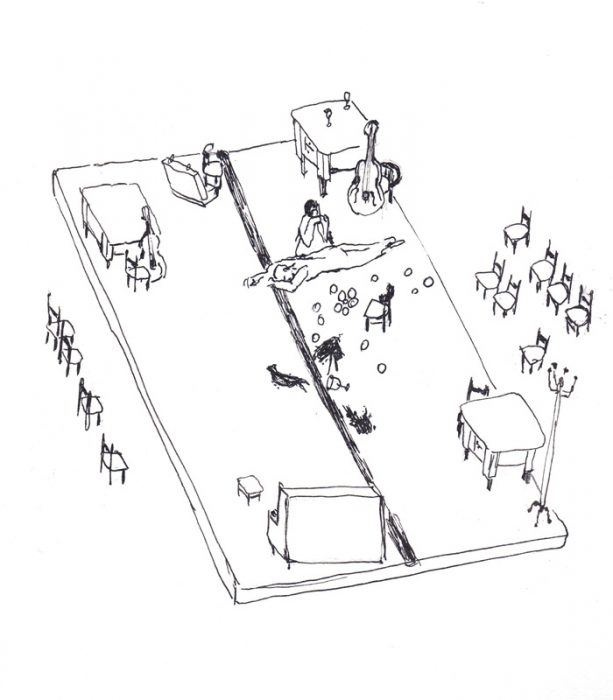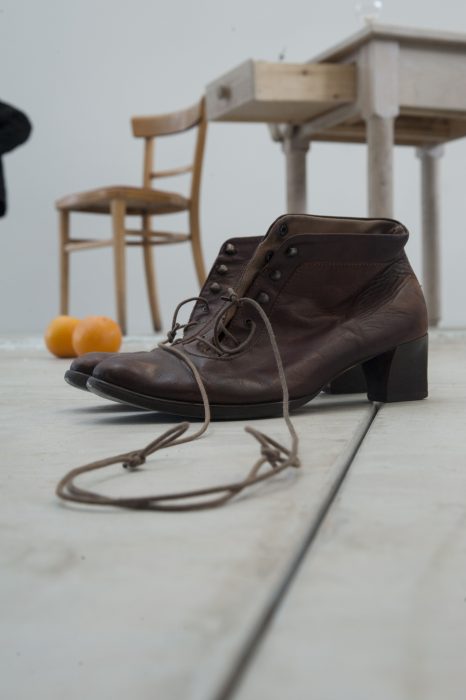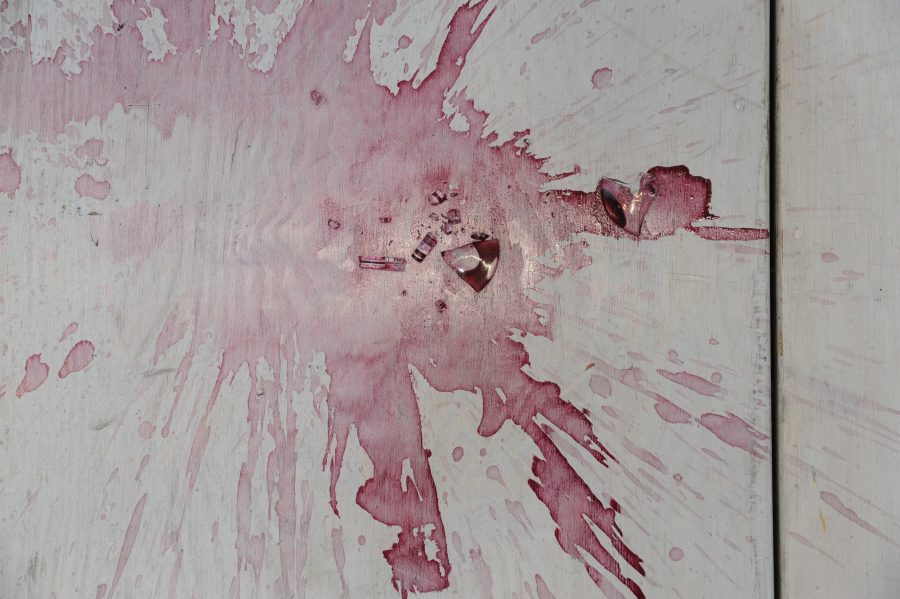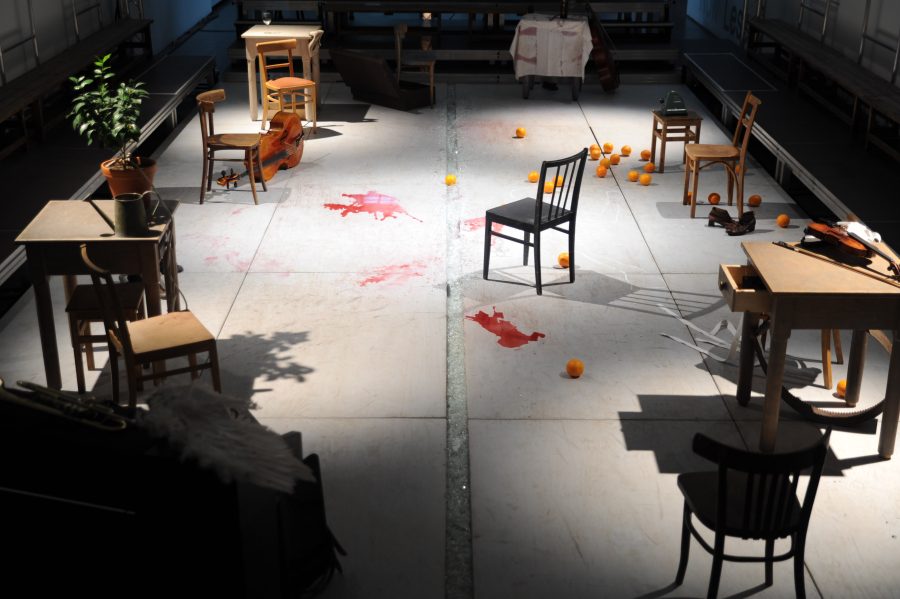Performance
Caesarean Section
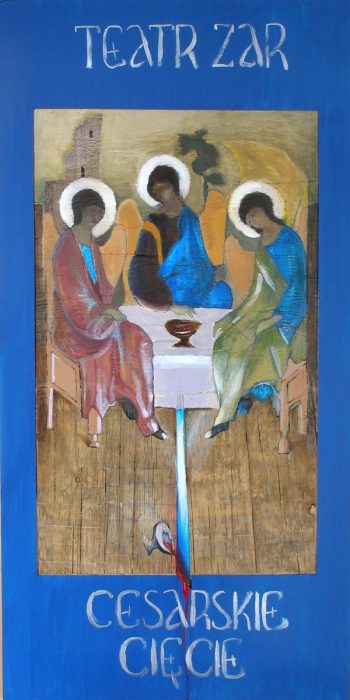
Essays on Suicide
In the consecutive versions of the performance participated:
Women: KAMILA KLAMUT /
DITE BERKELEY / EMMA BONNICI
Man: MATEJ MATEJKA
and
- NINI JULIA BANG
- TOMASZ BOJARSKI
- DANIEL CUNNINGHAM
- ALESSANDRO CURTI
- JEAN FRANÇOIS FAVREAU
- JAROSŁAW FRET
- ALEKSANDRA KOTECKA
- EWA PASIKOWSKA
- OREST SHARAK
- TOMASZ WIERZBOWSKI
Project leader: JAROSŁAW FRET
Music collaboration: MARIANA SADOWSKA
Collaboration on the movement score: VIVIEN WOOD
Lighting: JAROSŁAW FRET

Performace shown at the Fringe Festival in Edinburgh in August 2012 was presented with the prestigious Total Theatre Award in the category Physical/Visual Theatre and Herald Angel Award
We dedicate this performance to:
- The Force of Gravitation
- Our Throats
- Wise Bridesmaids
- Foolish Bridesmaids
- All the Lukewarm
- Zygmunt Duczyński
The first special presentation of the project took place in May 2007 in Florence as part of the Fabbrica Europa festival, at the invitation of Roberto Bacci. The premiere of the performance was in December 2007 in the Grotowski Institute, Wrocław.
The title of the performance is a metaphor for suicidal compulsion and the involuntary force that pulls us back from the brink. It is about the potential of the necessary ability to prolong one’s breathing at the moment when one feels in the veins the pieces of glass that haven’t yet managed to reach the heart.
Caesarean Section’s musical structure was developed from a base of polyphonic Corsican songs, into which Bulgarian, Romanian, Icelandic and Chechen songs have been woven. It’s subtle power and energy owes a debt to composer Eric Satie and his discovery of the intensity that can be transmitted by each and every drop of sound. Through contact with and integration into this contemporary theatre piece the traditional musical material becomes transformed and taken on a new form, becoming seamlessly interwoven with intensive movement by the performers. ZAR also acknowledges the great literary influence of Aglaya Veteranyi on this work.
During the research process, members of ZAR made several trips to Corsica in search of new material for the emerging musical score. Their active participation in paschal liturgy in Tox near Bastia represented a pivotal moment. Therefore the climax of the performance is characterised by the liturgical music of Corsican confraternities. While the score’s basic ‘tectonics’ are grounded in Corsican music, they have been interwoven by Bulgarian cries, calls and incantations to enhance the musical dramaturgy.
There is but one truly serious philosophical problem, and that is suicide. Judging whether life is or is not worth living amounts to answering the fundamental question of philosophy. All the rest, whether or not the world has three dimensions, whether the mind has nine or twelve categories, comes afterwards. These are games; one must first answer […]
[Albert Camus, The Myth of Sisyphus]
